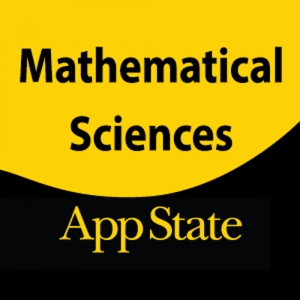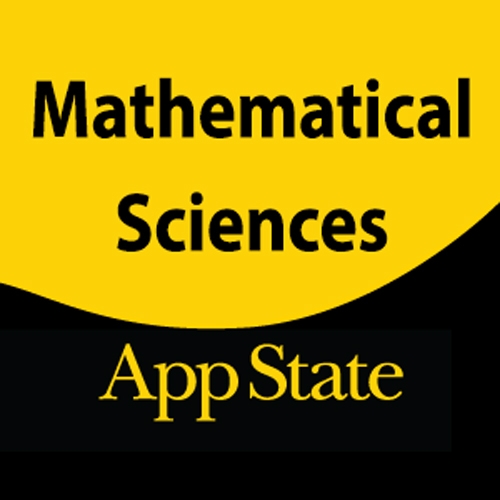Dr. Tracie McLemore Salinas, Professor, Department of Mathematical Sciences and the Director of Teacher Education & Engagement in the College of Arts and Sciences, Appalachian State University
Thursday, Nov. 15, 2018
3-4 p.m.
Walker Hall, Room 103A
This talk is free and open to the campus and community.
The acronym STEM brings with it a number of interpretations, but it is often simply used as an umbrella under which various combinations of the four indicated disciplines - Science, Technology, Engineering and Mathematics - may fall. As a result there are few cohesive conceptualizations of the sum of the four disciplines, making policy and practice discussions challenging, particularly for teachers seeking to create meaningful STEM-integrated experiences for their students.
This talk presents a historical view of the concept of STEM and shares some of the contextual factors that are particular to the teaching and learning of STEM. Further, Salinas proposes a framework for conceptualizing STEM disciplines for education that relies on the practices inherent within each discipline and those common to all. Salinas will report on progress in using this framework with teachers in various settings and plans for its use in the future, particularly in developing trajectories for STEM learning across grade levels and in international settings.
Salinas is a Professor in the Department of Mathematical Sciences and the Director of Teacher Education and Engagement in the College of Arts and Sciences. A rural mathematics educator, she completed her Ph.D in Education at The University of Tennessee- Knoxville. Salinas is currently interested in the organizational structures of education preparation and how to leverage resources and social structures for the improvement of teaching and learning. She sees strengthening educational outcomes as key to the self-sufficiency and sustainability of communities. She is researching the importance of and implications for affecting educational change in STEM education in rural areas through professional development projects and outreach. Additionally, she is also investigating the dissemination of change in teacher education across formally defined organizational structures.
Sponsored by the Department of Mathematical Sciences. Please contact Quinn Morris morrisqa@appstate.edu or Travis Weiland weilandtj@appstate.edu or visit our department colloquium website https://mathsci.appstate.edu/activities-outreach/department-colloquia to view more information and see other upcoming events.
###
About the Department of Mathematical Sciences
The Department of Mathematical Sciences offers undergraduate degrees in actuarial science and mathematics, with concentrations in business, computation, life sciences, physical sciences, secondary teaching and statistics, plus a general, self-designed concentration. The department also offers the Master of Arts in mathematics, with concentrations in college teaching and secondary teaching. Learn more at https://mathsci.appstate.edu.
About the College of Arts and Sciences
The College of Arts and Sciences is home to 16 academic departments, one stand-alone academic program, two centers and one residential college. These units span the humanities and the social, mathematical and natural sciences. The College of Arts and Sciences aims to develop a distinctive identity built upon our university's strengths, traditions and unique location. The college’s values lie not only in service to the university and local community, but through inspiring, training, educating and sustaining the development of its students as global citizens. There are approximately 6,100 student majors in the college. As the college is also largely responsible for implementing Appalachian's general education curriculum, it is heavily involved in the education of all students at the university, including those pursuing majors in other colleges. Learn more at https://cas.appstate.edu.

